After years of riding in the slow lane, the retail milk category got a pandemic-related jump last year. But since COVID-19-related panic buying subsided and some normalcy returned in 2021, milk sales felt the gridlock once again. According to data from Chicago-based IRI, while retail dollar sales in the overall category were up slightly (rising 0.6% to $16,584.5 million) during the 52 weeks ending Sept. 5, 2021, unit sales fell 2.7% to 5,478.5 million.
It was a similarly twisted highway within the milk subcategories. The refrigerated flavored milk/eggnog/buttermilk subcategory was still riding on cruise control: Dollar sales increased 4.8% (to $1,646,5 million), and unit sales rose 1.0% (to 658.2 million). Refrigerated whole-milk dollar sales jumped 1.2% to $5,430.2 million, but unit sales fell 2.4% to 1,733.1 million. And refrigerated skim/low-fat milk struggled. Dollar sales in the subcategory decreased 2.8% to $7,174.4 million, and unit sales plummeted 6.3% to 2,379.8 million.
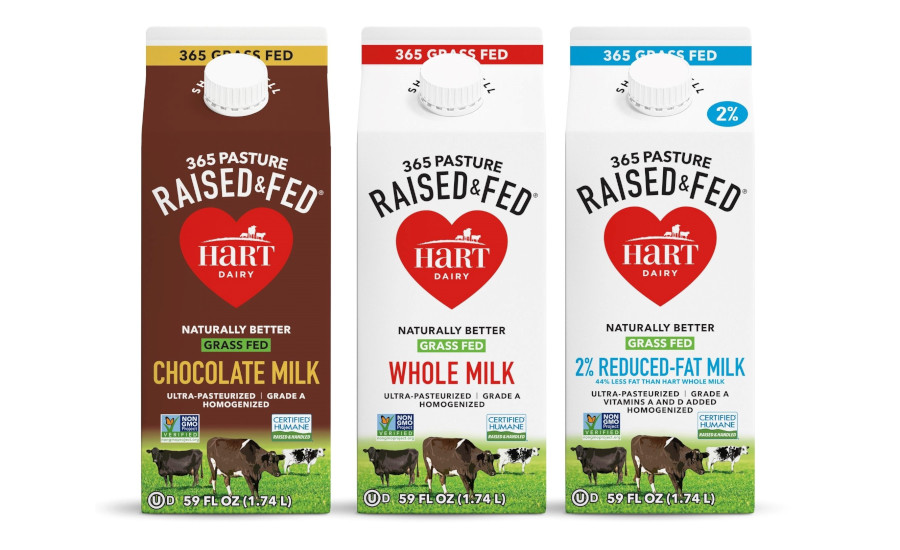
Pandemic creates a sales detour
The culprit for these reduced sales? People have returned to their pre-pandemic on-the-go lifestyles, notes Rachel Kyllo, senior vice president, marketing innovation, dairy brands for Kansas City, Kan.-based Dairy Farmers of America (DFA).
“We were hopeful that some of the consumer behavioral changes that emerged during the pandemic (more at-home breakfast, more family meals at home) would continue,” says Kyllo. “That has not been the case, and as consumers return to ‘life on the go,’ milk sales have suffered.”
George Konovalov, vice president of sales for Waynesboro, Ga.-based Hart Dairy, notes that some pandemic-related consumer eating habits such as eating a larger breakfast at home have stuck around and helped milk sales. The pandemic also increased consumers’ willingness to try new brands, including Hart Dairy, as shortages made some products unavailable.
The data do show a retail sales increase from pre-pandemic times. We noted in our November 2019 State of the Industry issue that dollar sales in the refrigerated skim/low-fat milk subcategory totaled $6,926.4 million during the 52-week period ending Aug, 11, 2019, according IRI data. Whole milk dollar sales were $4,838.7 for the same period.
According to Rick Beaman, vice president, Hiland Dairy/Joint Ventures for Springfield, Mo.-based Hiland Dairy Foods Co. LLC, dairy exploded in popularity during the pandemic.
“And while milk sales trends have slightly declined, consumers were reminded that there is so much good about dairy milk: It is nutritious, and there is something for almost everyone’s wellness and taste needs,” he points out.
Nutrition benefits are in the fast lane
According to Meenakshi Trehan, vice president of brand management and innovation for La Farge, Wis.-based Organic Valley, the pandemic created a collective “lived experience” of having “wellbeing severely at risk.” Because of this, many consumers are opting for food and beverages that feature health benefits.
Konovalov agrees, noting that many shoppers look for value-added milk products that offer something beyond traditional dairy.
“Hart Dairy’s greater levels of omega 3s, CLA, and antioxidants have proven to be attractive to nutrition-seeking families and health-[conscious] consumers,” he adds.
For its part, Fairlife LLC added Fairlife Nutrition Plan nutritional shakes, which offer healthful benefits. The Chicago-based company says it combined ultrafiltered milk with natural flavors to create the shakes. They are available in conveniently sized 11.5-ounce bottles and contain 30 grams of high-quality dairy protein, 2 grams of sugar, 150 calories, and eight essential vitamins and minerals.
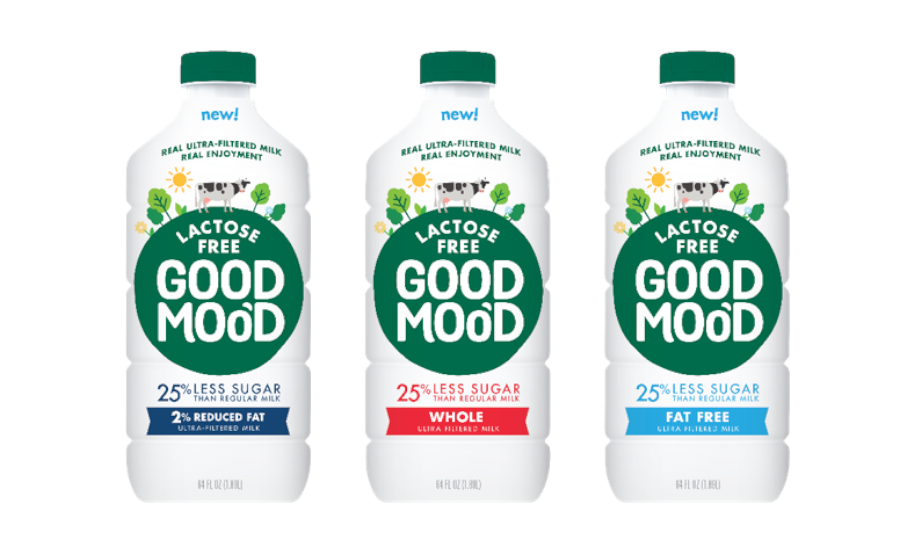
Fairlife says the ready-to-drink shakes are available in Chocolate, Salted Caramel, Coffee, and Vanilla flavors. The offerings come in a variety of multipack options and prices, including four-packs, 12-packs, and 18-packs. Fairlife Nutrition Plan can be found in the shelf-stable aisles of Sam's Club, BJ's Wholesale Club, and Costco locations, as well as select Walmart stores.
And kids’ beverage company Good2grow created a product specifically designed for kids’ nutrition: Good2grow organic milk. The Atlanta-based company says the new product appeals to kids with its two kid-friendly flavors — Strawberry and Chocolate — and hundreds of kid-requested character tops. It also provides a slew of nutritional benefits, including being a good source of vitamins A and D and calcium and containing 8 grams of protein per serving.
“We know that parents are more selective than ever when it comes to their kids’ beverage consumption, in terms of nutritional attributes, convenience, and especially variety,” says Gunnar Olson, CEO of Good2grow.
Milk produced from grass-fed cows is another expanding area — with many consumers believing these products to be more nutritious than traditional dairy. However, most of the growth here is with the pricier organic brands, Konovalov says. For its part, Hart Dairy added three “naturally pastured grass-fed” milks this year, which — at a suggested retail price of $4.99 — are more affordably priced than other similar options.
“We see a strong opportunity to further develop the segment through a more affordably priced grass-fed product,” he remarks.
According to Trehan, Organic Valley also introduced a product made with milk from grass-fed cows this year: Organic Valley fat-free Grassmilk. The fat-free option joins the cooperative’s lineup of whole and reduced-fat 2% Grassmilk. The fat-free Grassmilk also contains essential nutrients such as vitamins A and D with the same nutrient density and 100% commitment to grass-fed as the rest of the product line.
“All Organic Valley Grassmilk is made with milk from third-party certified grass-fed cows on organic family farms, which means that cows are on pasture for more than 150 days per year and are fed 100% grass and dried forages year-round, never grain,” explains Trehan.
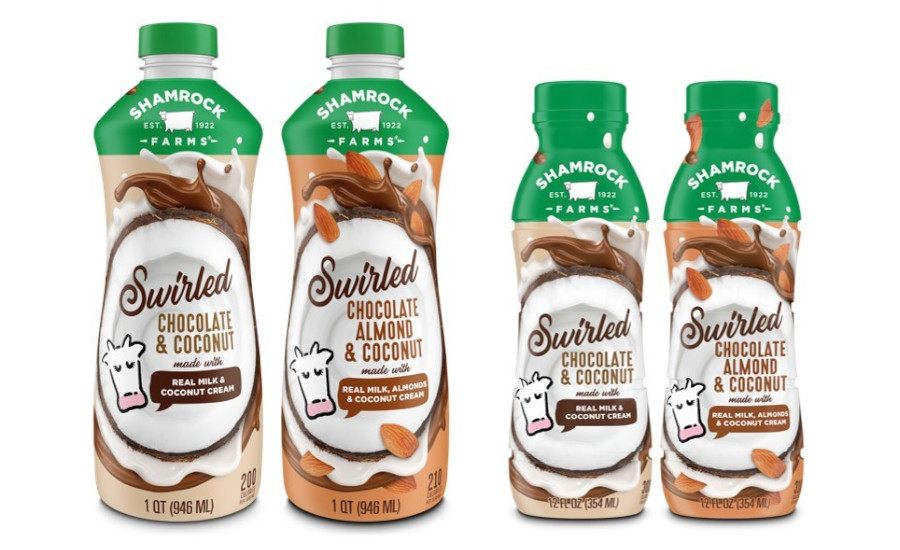
‘Free-from’ claims have right of way
Some wellness-minded consumers search for “free-from” products as opposed to ones with an added health benefit, and an area of concern here is sugar reduction.
With this in mind, Kinderhook, N.Y.-based Maple Hill Creamery unveiled zero-sugar organic ultrafiltered milk. The average serving of milk has 12 grams of sugar, but Maple Hill says its soft-filtering process skims out the sugar, carbs and lactose from milk while retaining its farm-fresh taste and nutrition.
Lactose-free milk products also continue to be popular, notes Beaman.
Fairlife built on the success of its other lactose-free lines with the introduction of a new brand: Good Moo’d. Made through a patented ultrafiltration process, the brand’s products bring forward the smooth, creamy and rich taste milk lovers remember and contain 25% less sugar than the leading lactose-free milk, the company says.
“Good Moo’d doesn’t compromise,” explains Jeremy Faa, chief operating officer of Fairlife. “It’s lactose-free, great-tasting and a better-for-you choice in what was — before today — a category with limited options.”
In a consumer study, 40% of consumers described lactose-free options as “too sweet” when asked to describe them, Fairlife says. Good Moo’d’s ultrafiltration approach — paired with the addition of the lactase enzyme — is said to remove all lactose without compromising the creamy, natural taste of milk.
Another lactose-free offering introduced in 2021 comes from Stonyfield Organic. The Londonderry, N.H.-based company says it unveiled organic shelf-stable and lactose-free single-serve milk. Available nationwide, the ready-to-drink 8-ounce bottles currently come in two options: 2% reduced-fat Chocolate milk and 2% reduced-fat Plain milk.
And Organic Valley added low-fat Chocolate milk with a “new kid-friendly taste and lactose-free formulation” in January 2021, says Trehan.
“Because it is lactose-free, it is gentle on digestion (an attribute health-conscious moms and dads want),” she emphasizes. “This is part of a growing gentle digestion/lactose-free trend that has seen sales grow 15% over the last year.”
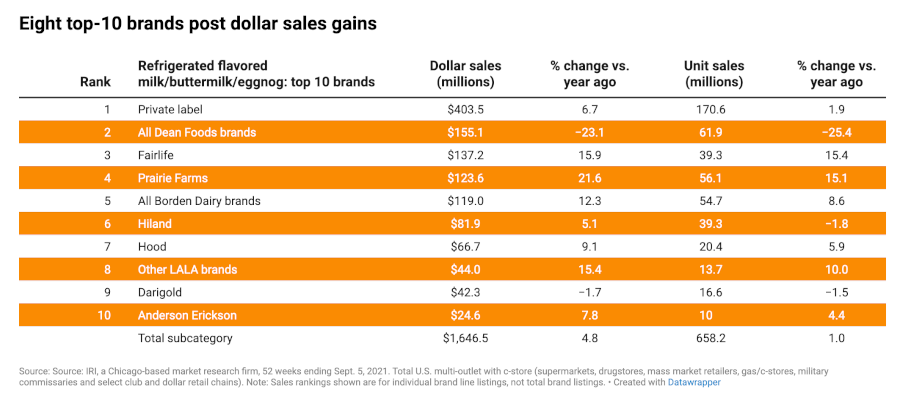
Flavored milk trucks along
As sales data show, flavored milk continues to be a growing area in the milk category. With that in mind, DFA relaunched its TruMoo flavored milk brand in the fourth quarter of 2021, notes Kyllo.
“It has been a leading brand in the flavored milk category, and we have reformulated and refreshed the brand graphics,” she explains. “We are excited to see how this energizes the flavored milk category.”
Beaman agrees that flavored milk has been a bright spot. With that in mind, Hiland Dairy recently began producing its Chocolate milk in 1-gallon containers. It also introduced three fall milk flavors: Halloween eggnog, Peanut Butter Chocolate milk and Pumpkin Spice milk. The products are limited-time offerings that are produced in small batches.
And Modesto, Calif.-based Crystal Creamery says it debuted Crystal Creamery deluxe Chocolate milk. Made with farm-fresh Crystal Creamery milk, the offering is blended with premium cocoa to create a more rich, intense chocolatey flavor that can be enjoyed every day on its own or used to elevate the mocha or specialty drink experience.
The whole-milk offering will join Crystal Creamery’s 1% low-fat Chocolate milk already in production. It also reflects the company’s commitment to cleaner ingredients. The deluxe whole Chocolate milk is sweetened with pure cane sugar, not high-fructose corn syrup. In addition, the Chocolate milk is made from milk delivered fresh from local family farms, from cows never treated with growth hormones. Each serving is an excellent source of calcium and contains 10 grams of protein and 230 calories, Crystal Creamery points out.
Phoenix-based Shamrock Farms, meanwhile, took a unique approach to flavored milk formulation in 2021: It crafted Swirled — a dairy- and plant-based hybrid beverage. The company says the indulgent hybrid offers the best of both worlds: real chocolate milk and the reduced sugar and healthful fats found in coconut cream and almonds.
Available in two flavors, Chocolate Coconut and Chocolate Almond Coconut, Swirled is a blend of cocoa, coconut cream, and real almonds made with milk from Shamrock Farms' family of local farms. With less sugar than the leading chocolate milk, Swirled has a silky-smooth texture, contains nine essential nutrients, and is free of artificial colors, ingredients, sweeteners, and growth hormones such as rBST, Shamrock Farms notes.
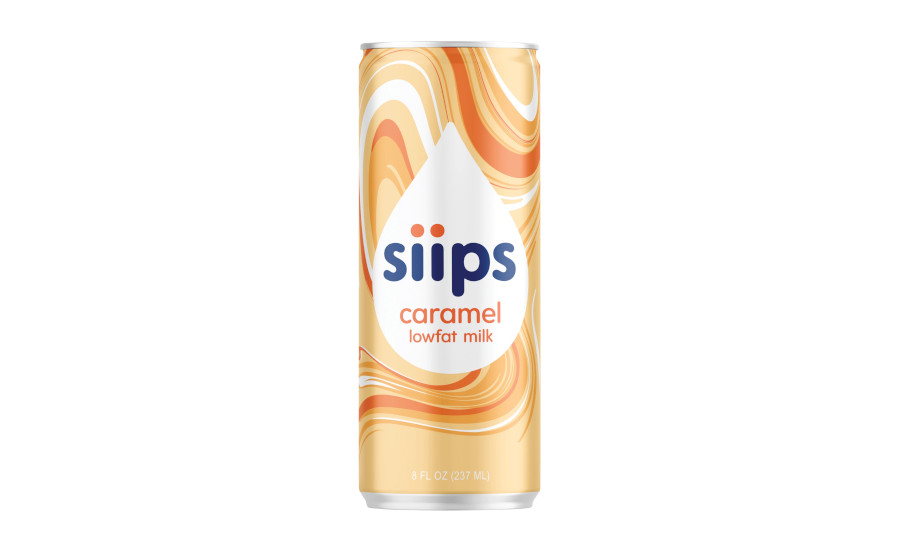
Milk should avoid dead ends
To keep milk relevant in the future, Kyllo says that the industry needs to move away from the traditional idea of milk and come up with “modern” milk products.
“Millennial consumers have a very different view of milk, and it will be difficult to engage them in the milk conversation unless we change the narrative,” she adds.
To that end, DFA added a new milk brand in late 2020 — Siips — that is designed to appeal to tweens and teens, Kyllo points out. The offering is a shelf-stable, on-the-go canned milk product that offers indulgent and on-trend flavor combinations. It is packed with protein and can be taken anywhere and enjoyed anytime.
“The [demographic] loves the product and reports it is a product experience that contemporizes their image of milk,” Kyllo notes.
Beaman says that a future product development opportunity for milk could be to emphasize its benefits as a sports recovery beverage.
“Milk is the original sports drink, and there are over 20 studies that support the benefits of low-fat chocolate milk as a recovery beverage,” he adds. “It contains the right mix of carbs and protein scientifically shown to help refuel and restore muscles.”
And Trehan notes that milk needs to be reestablished “as a powerhouse category and a solution that offers unparalleled nutrition.” She thinks that future product development could benefit from emphasizing milk’s health benefits.
“From an innovation standpoint, there will be continued innovation around the ‘food as medicine’ platform, including immunity, mental health, and digestive health, as well as the focus on indulgence,” she emphasizes.
Part of appealing to the contemporary consumer will involve communicating how dairy can be an environmentally friendly choice, humane choice. Consumer misinformation is currently influencing the perception of milk, notes Konovalov.
“There is a narrative threatening the dairy industry around concerns regarding animal treatment, environmental impact and health, and consumers are questioning if dairy is not as good as they thought it was,” says Trehan.
To combat this narrative, Organic Valley emphasizes its “ethical values” to distinguish itself as a brand “that cares,” she explains.
For its part, Hart Dairy produces dairy products from Certified Humane dairy operations with cows that are pasture-raised and grass-fed 365 days a year, Konovalov says.
“We’ve found that superior nutrition and pioneering farming practices that fight climate change are increasingly important to consumers,” he adds. “That’s why we take time to explain the positive impact our practices can have for milk fans and our world at large.”
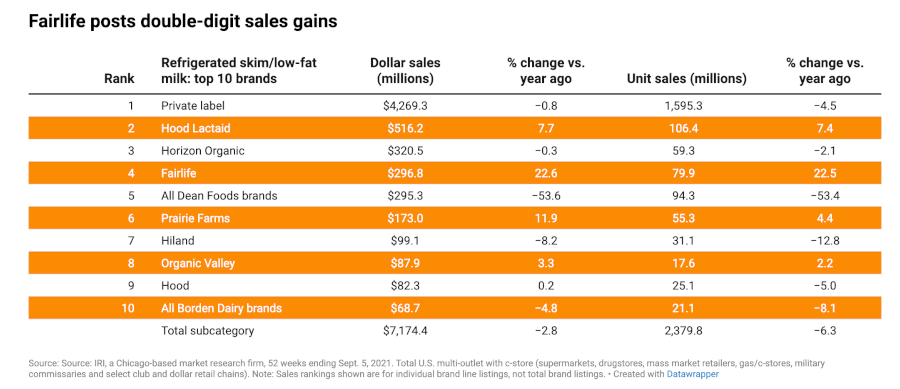
Meet the alternatives
- Broomfield, Colo.- and White Plains, N.Y.-based Danone North America says it created plant-based “milks” that don’t taste like any specific plant-based ingredient (almond, oat, soy, etc.). Launching in January 2022, new Silk Nextmilk and So Delicious Wondermilk are designed to help close the gap between traditional dairy drinkers and plant-based beverage consumers.
- NotCo, San Francisco, launched NotMilk in Whole Foods Market stores nationwide. According to the company, NotMilk is the next generation of plant-based “milk,” standing out in the crowded landscape of dairy-alternative products by delivering a taste and texture that replicate dairy milk. The beverage is available in two varieties: NotMilk whole and NotMilk 2% reduced-fat.




